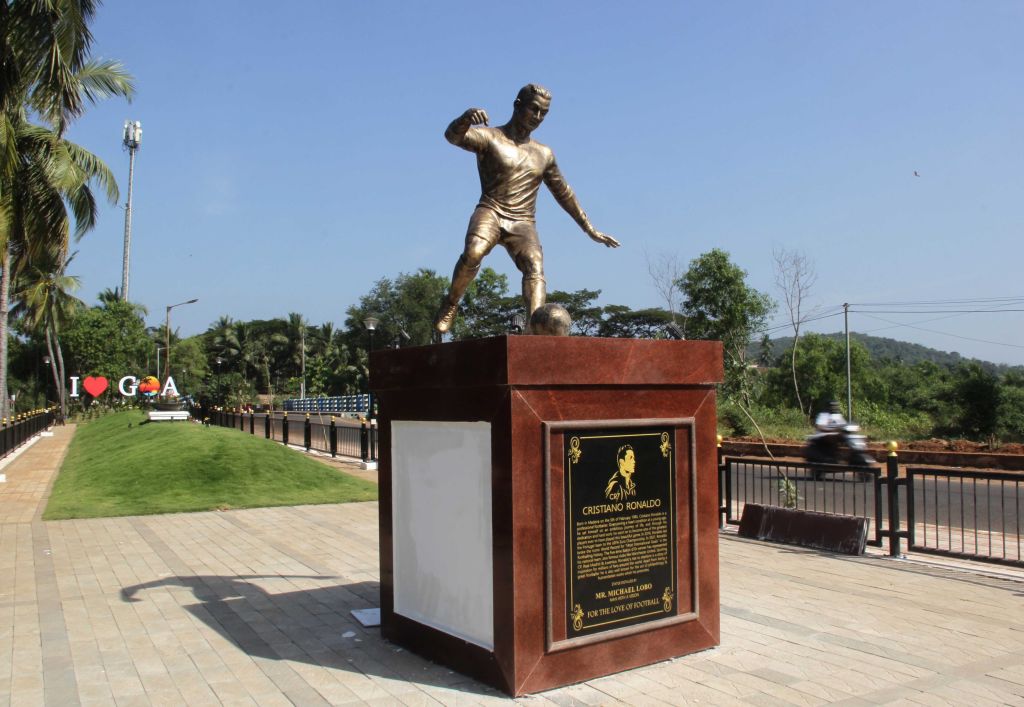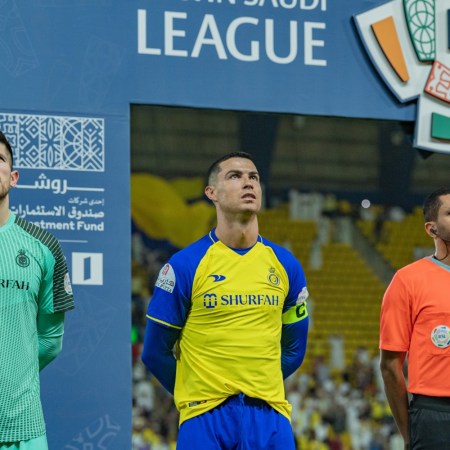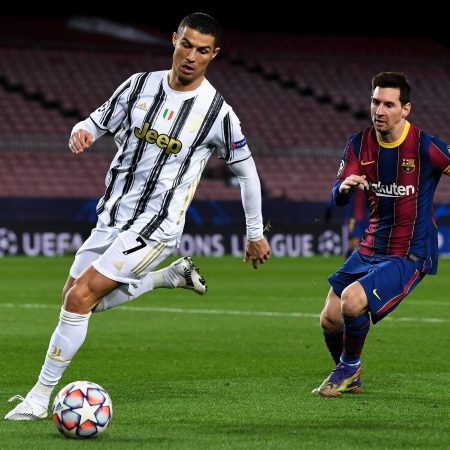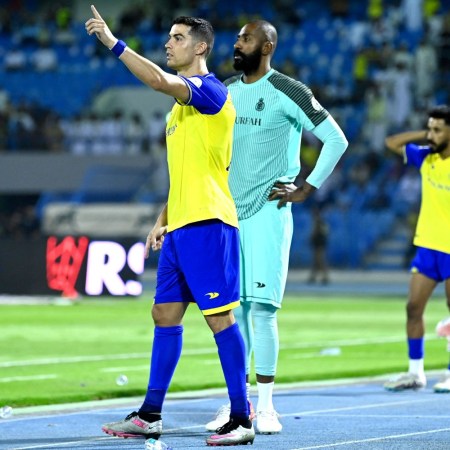In the year 1510, Portuguese military forces began the process of taking control of Goa, a region on the west coast of India. It remained under Portuguese control for over 450 years, with India resuming control of Goa in 1961. Still, traces of the colonial period can still be seen throughout Goa, most notably in the region’s architecture. But now, a different element of Portuguese history and culture has appeared in Goa, and it’s led to some controversy.
As The Guardian reports, a statue of Cristiano Ronaldo was recently unveiled in Goa. Politician Michael Lobo took to Twitter and wrote, “For the love of football and at the request of our youth we put up Cristiano Ronaldo’s statue in the park to inspire our youngsters to take football to greater heights.”
If your response to this is to think that some Goans might be less than thrilled about a statue honoring a soccer player hailing from the country that once ruled Goa in an era of colonialism — you would be entirely correct. (There may well be other reasons some aren’t happy about a Ronaldo statue as well.) The article notes that one protester, for instance, argued that a statue of a prominent Indian soccer player would be more appropriate.
Among the names cited by the protester was Samir Naik, a longtime member of India’s national team and now the coach of Goa’s Dempo SC. It’s not hard to see why this statue has frustrated people. Wanting to raise awareness of the sport is a laudable goal; reminding people of centuries of colonialism, though, seems like a flawed way to go about it.
The Charge will help you move better, think clearer and stay in the game longer. Subscribe to our wellness newsletter today.

















